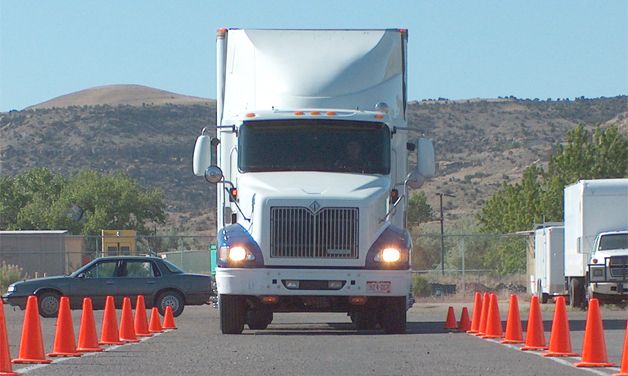Legion credentialing efforts reach every state

The Legion’s mission to make it easier for servicemembers to obtain commercial drivers licenses (CDLs) started with passage of a single federal law. Now, it’s reached every state.
On Feb. 4, Alabama will officially pass a law that waives the skills test requirement for current and former servicemembers who gained sufficient truck-driving experience in the military, making it the 50th and final state to pass such legislation. The Alabama bill caps off a collaborative effort from the Legion, the U.S. departments of Defense and Transportation, and National Governors Association to persuade every state’s legislature to waive its skills test requirements for veterans looking to obtain a CDL.
The Military Commercial Drivers License Act of 2012, which allowed states to lift their residency requirements for veterans applying for CDLs, made way for state legislatures to act. The Legion was the only veterans service organization to back the original federal legislation.
“There was sentiment that it might not be possible to persuade every state to act in unison in easing CDL requirements for military, but thanks to hard work from our national staff, our partners and Legionnaires everywhere rallying support for these laws in their state legislatures, we were able to accomplish what we set out to do,” said Steve Gonzalez, assistant director for the Legion’s Veterans Education and Employment Division. “It’s not just a victory for us – it’s a victory for veterans everywhere who can finally put their service-learned skills to use.”
This isn’t the Legion’s first victory in the realm of credentialing legislation, as the organization has been lobbying lawmakers to allow military-earned skills to meet requirements for professional certifications and licenses since the mid-1990s. However, most of the legislation that has been passed helps veterans obtain federal licenses, not state licenses.
That trend has officially been bucked now that all 50 states have waived their CDL skills test requirements for veterans with applicable military experience. Gonzalez, however, urged that the Legion’s work is far from done in lobbying state legislatures.
“States still have plenty of room to act when it comes to easing their requirements for veterans looking to obtain professional licenses and certifications,” Gonzalez said. “For example, states can offer temporary teaching licenses to veterans and their spouses who move states due to service obligations. In this area, the Legion’s work is far from done.”

